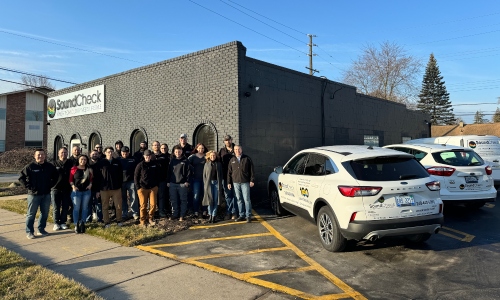The medical profession’s loss turned out to be the custom integration industry’s gain — and hundreds of customers over the past 15+ years. That’s because Neal Check took his career path in a different direction than he originally wanted, and it’s led to him to ownership of hugely successful integration firm SoundCheck in Detroit’s affluent Southfield suburb.
Neal and his wife, Dawn, run the company very efficiently, and SoundCheck landed in the CE Pro 100 rankings at No. 93 last year after posting nearly $3.7 million in revenues from about 70 residential projects.
Two major reasons for the integrator’s growth over the years are its unique offerings and its inspirational Experience Center. The latter is literally a home within their building, outfitted whole-heartedly with impressive technologies in each room. The former is one of those — a full-throttle sports simulator suite that lights up visitors’ eyes when they see and play with it.
SoundCheck’s Beginnings in the Alarm Business
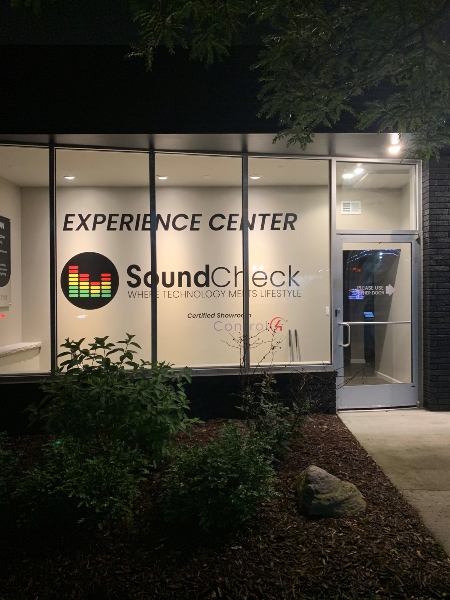
Neal Check entered the custom integration channel after “a lifetime” working in the alarm industry, first for his father and then running his own company. In the 1960s his dad and best friend from high school started a company called American Protective Alarms.
“In my family, as soon as you were 16 years old — I didn’t have any sisters, I had three older brothers — my dad would put a tool belt on you and say, ‘Go install alarms.’ So, in the space of low-voltage, I’ve really been doing it all my life and I’m going to be 60 years old this November.”
Check’s brothers and played different roles in it, but they all moved on and became attorneys, while he went in a different direction. “I was actually pre-med at Wayne State for two years, if you can believe that. I was really into surgery and my roommate’s dad was the dean of the school, but it wasn’t for me,” Check recounts.
As his dad dealt with medical issues that worsened, he wanted to take a more active role in American Protective Alarms. Check eventually became vice president of the company and was involved in acquisitions and other important matters.
When his father indicated he wanted to sell and retire, which the family encouraged him to do because he was struggling with his medical condition, “I said, ‘Dad, go and retire, I’m going to start my own alarm company’ because this is what I’ve done all my life.”
In 1993, American Protective Alarms was acquired, but sadly, his father died four weeks into retirement. His legacy was carried on by Check, who started a company called Security Management. It was a pure alarm company, selling and installing mainly commercial industrial projects as well as some residential on access control, burglar/fire alarm systems, and monitoring via their own central station.
Check sold that company in 2008, but before doing so he had already taken an interest in AV and home automation.
“The year before I got acquired, I started dabbling in audio and video, and really thought that home automation was the future even though I didn’t know that much about it,” he says.
Embracing New Endeavor Amid the Recession
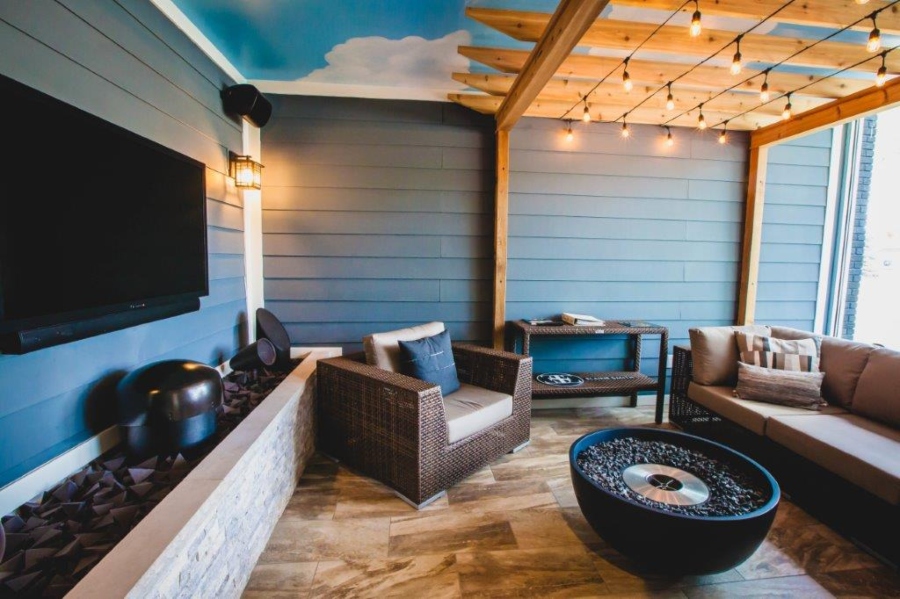
Check’s growing interest heightened when he began building his house. He went to Best Buy and told a salesperson about it and didn’t know what to buy, including the key wiring and cabling infrastructure.
“He comes back with this gigantic chart and it was a picture of every cable known to mankind and what they were for — and I used to just stare at this thing on the wall. Then I had a client call who was building a spec house and he wanted us to prewire it for alarm, and I said, ‘You know, we do automation and audio/video,’ and he goes, ‘You do? Really? Can you prewire for that?’ So we ran every cable, in giant bundles of wire to every TV, etc.,” Check recalls. “We just didn’t know what we were doing.”
In 2008, Security Management was acquired and he had to heed to a non-compete in the alarm business for five years. However, his company had already established SoundCheck as a way to crack into home electronics.
“Before we were acquired, I was running around with my Security Management cards but people would come to me and say they didn’t want an alarm but they did want AV,” and they had to come up with a name. The name SoundCheck came up because Check was the family name, “and it just stuck, and we came up with a logo and all that. So when we were acquired, we were about 10 months into doing audio/video under the SoundCheck brand.”
When Security Management sold to a big local competitor, he approached the new owners and asked if he could continue in home automation and AV — and received their blessing. They even told him they’d send business his way.
It meant he went from working with a staff of 15-18 employees down to just a couple. Check did the selling and the books, and had two installation techs. Serendipitously, Security Management had cashed out from what was a 90% cash acquisition, just before the financial crisis was about to hit.
From his experience, Check says he learned that when the housing market took a downturn to focus on the retrofit opportunities. “We started to align with builders that specialized in remodeling, because people weren’t moving or building,” he says. “They pulled us through that time when a lot of people that were already established in this space were struggling, they were going down with the housing market. It helped keep the company stable until the market began to turn around in 2010.”
At CEDIA Expo 2008, as a new company in the custom industry (attending as a NetStreams dealer for training and to pick up their demo kit), Check on a whim visited the Control4 booth and expressed interest. His automation and AV experience was questioned since he was known as a security installer, but Check mentioned his long history in the low-voltage space. He invited Control4’s Blake VanCleave to visit his office and then form an opinion.
Check says after introductions, he boldly commented that if he were to get a dealership (Control4 already had dealers in the Detroit area), “One day you’ll tell me it was the best decision you ever made.” In 2012 when VanCleave attended his and Dawn’s wedding, Check saw him in the lobby “and he put his arm around me and said, ‘Taking you on as a Control4 dealer? That was the best decision I ever made.’ The rest was history,” he says.
SoundCheck Swings Away with Sports Simulation
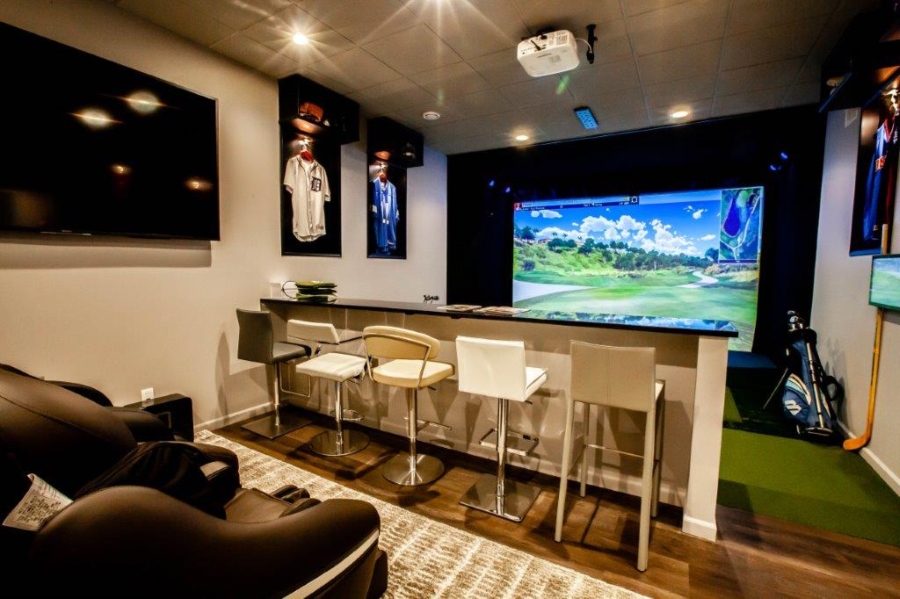
Check started dating Dawn around 2008, and soon after proposed she join him at SoundCheck. They had only been dating for about a year and she balked at the idea, worrying about the potential impact on their relationship.
But it was during the Great Recession and sales were slowing in the janitorial service company where she had gained strong sales experience. Neal needed assistance, “So I thought, what a way to combine our efforts into one place,” she comments. “I came on board, it was early 2009, and never looked back.”
“And she’s a natural salesperson,” Neal adds. When Dawn joined, it was in a sales role, but they quickly realized the company really needed help with bookkeeping. She learned QuickBooks and “he taught me everything I know,” she says.
A few years later, SoundCheck was asked by an integrator it respected in the area but one that didn’t pivot during the rough recession years, if they would absorb it, which they agreed to do.
“We were busy, and we picked up some expertise,” Neal says. The team gained additional personnel via the merger as well as their institutional knowledge of the integration industry.
Neal says the cash from Security Management’s acquisition gave SoundCheck a nice financial foundation and funds with which it could start building out a showroom.
“I was always someone who sold from an interactive aspect — get people immersed in the experience, get their hands on a product. And in this building that I own we had all this extra office space, so we had plenty of room to build a little Control4 showroom,” he says. “The other thing was that in assessing my competitors, we were all kind of doing the same thing. They were doing it on a much larger scale, so what’s something we could bring to SoundCheck that would make us unique?’”
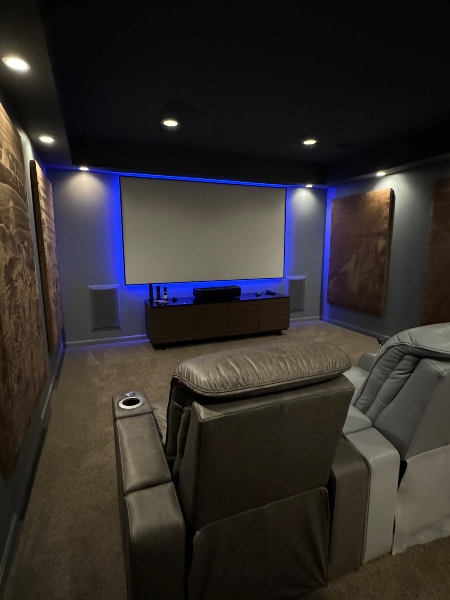
The answer was a a Toronto-based company, Visual Sports, which it found during a CEDIA Expo. It was a golf simulator company, but Neal was even more intrigued because of its uniqueness for actually being a multisport simulator.
“People were buying it for the golf, but it was the only company in the world where you could play baseball on it, hockey, football, basketball, soccer, bocci — all these different games, and we had space for it in the building,” he explains.
“I said while we’re building out SoundCheck and trying to get our feet wet with Control4, let’s give a unique reason for people to visit. So we made a commitment to Full Swing Golf (which had acquired Visual Sports) and became their Michigan dealer, and that was an important move for us. I love golf, but I thought these other sports would make it much more family entertainment, because people who were coming into our showroom were families.”
Neal says SoundCheck started picking up some builders, which earned new business, becoming more than two technicians could handle. “So we started hiring and in 2010 everything really took off for us,” he says.
“They were mid- to high-end builders and we definitely knew that someone who was going to buy a $50,000 sports simulator was going to be somebody who had some level of disposable income and so we knew we need to align with builders who were catering to those people. Where we are in Southfield, we’re in Oakland County — it’s one of the most affluent counties in the country, I’m sure it’s in the top 100, so we’re right where all the action is.”
The building the Checks own is about 2,400 square feet, and there was a big conference room that they didn’t need after Security Management was sold, so they turned that into the sports simulator showcase. They also turned the installation manager’s office room into a family room vignette with motorized shades from QMotion, and electric fireplace with a TV and a Leon surround bar, Control4 light switches, thermostat, a couple of zones of audio.
“It was like a den, it was cute,” he says.
Going All-in on an ‘Experience Center’
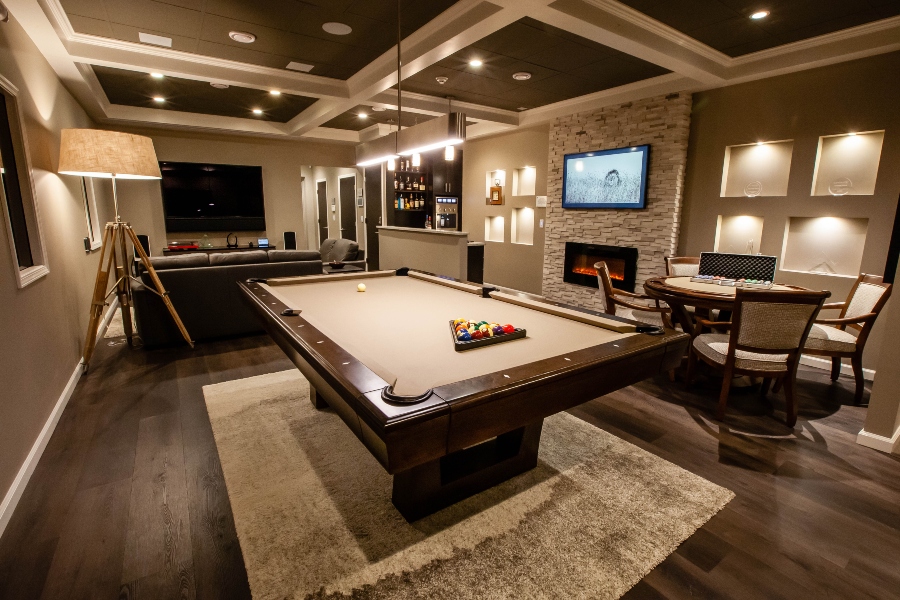
Eventually, the integrator’s neighbors wanted to sell their buildings. It included a barber next to them who wanted to shut down his shop to retire, and the Checks worked out a deal to buy the buildings. They picked up roughly another 3,000 square feet of space.
The purchased buildings remained mostly empty until SoundCheck began seeing a gradual increase in customers and realized it should utilize the space better.
“Dawn and I decided, what if we gut that space and build a home inside the building, furnish it, and then put in electronics. We already proved that this little 14×14 showroom back here plus the golf were working,” Neal states. “But what if we had something bigger with a new golf simulator suite, more technology, shade demos, dedicated theater, living space theater, all these different things?”
The company began building it out over time by reinvesting profits and cash into the project, for which the SoundCheck team performed the work. Plus, after the alarm non-compete expired the company resurrected its security business as a separate entity called SecureCheck in 2013.
Meanwhile, during the recession the Checks had used some of their financial win fall on opening another company dedicated to raising awareness and introducing technology for the builder market, and working with an architect they had constructed some electronics-laden spec homes in nearby Birmingham.
“It was going to be pure automation from the ground up. We built a house in what’s called ‘modern prairie’ style, we put an ad on Craigslist, and a couple from Chicago saw it and came out with full asking price during the recession,” he recalls.
They began building more specs outfitted with technology, but kept the business somewhat under wraps so as to not perturb the custom builders that were feeding SoundCheck jobs.
The experience, however, helped the Checks and team create their showroom because now they had design services under their belt as well. They went from calling it a showroom to using the Experience Center moniker.
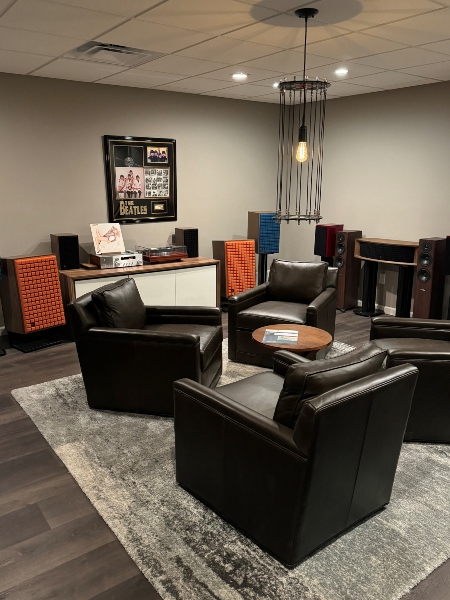
“A showroom is a place where you come and buy. People used to go to our old showroom, and I’d take out my pen and say, ‘Sign here.’ The Experience Center is a 2,500-square-foot finished home with a full kitchen, bathroom, family room, golf simulator suite, outdoor showroom; we have the only dedicated JBL Synthesis-certified theater in Michigan,” Check explains.
“So we had these uniques and now we tell people to come to the Experience Center, you’re coming here to get an education — we want to walk you around and show you technology and make you comfortable with it in environment that you can relate to. It’s a home, it’s not a board of technology showing flashy things and cable connections; this was a working home immersed in technology.”
On the door where people walk in, it says “Welcome to Cool,” he adds. “People walk in and they say, ‘Wow, this is cool!’ In the end [of a tour], I can see it in people’s eyes — we know they’re going to do business with SoundCheck, we just don’t know what they’re going to buy. The Experience Center is to come and get educated, we’ll sell you later.”
They started working on it in 2018 and held its grand opening… three months before the pandemic. However, once the state shutdown eased, it was a more accessible destination than, say, Best Buy because it was by-appointment only, and it was just Check and the client so social distancing was not a factor.
“We immediately saw that from the minute we opened the Experience Center, that people were coming in and wanting technology that they saw that we would never have been able to sell them if we just showed them pretty pictures or TickTock,” he says. “Now they come and they’re like, ‘Oh my god, I can have a TV pop out of my kitchen counter?’ Yeah, you could have that same thing.”
Securing Impressive Growth
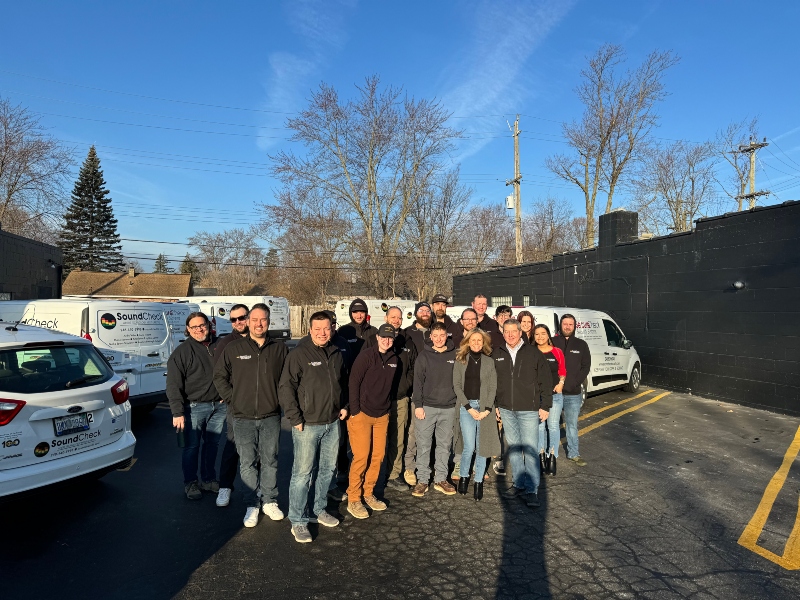
From 2010 post-recession, SoundCheck has achieved double-digit growth year-over-year, Check says. Even competitors were impressed he says, and when they’d run into each other he was told they “Launched like a rocket,” Check enthuses. “The Experience Center was a real game-changer.”
They continued to add personnel, and have provided plenty of perks to keep morale and retention levels high. The integrator invests greatly in its staff.
“We do a lot of that. We offer the usual medical, dental, and vision insurance for everybody. We also have a simple IRA program that they can participate in that we match,” Dawn Check notes.
“As far trainings, we’re very big on helping our crew excel in whatever their interests are — through meetings and interviews we to them about where their passions lie, are any areas of the business you’d like to learn more, whether it’s lighting and shade installation, installing the simulators, and then making sure one of the crew members shows them or sending them to trainings. Our entire team is Control4 certified.”
SoundCheck is also engaging a lot with ProSource due to the buying group’s ProSource University. All of the technicians get logins so they can scroll through all of the trainings that are available to them and work on their own if they want to, or approach Neal and Dawn to ask about attending certain trainings they really want to take.
What’s next for SoundCheck? The company plans to showcase new tech in the Experience Center such as indoor air quality and circadian lighting. They’ll be installing a Broan-NuTone Overture IAQ system that will offer a compelling demo in conjunction with Control4. They’re taking on Colorbeam, where they want to place conventional can lights side by side with the RGBW tunable can to highlight how it can transform a space and accentuate features.
So, while the medical world and becoming a surgeon might have been an attractive career for Neal Check, there’s no denying that his “Welcome to Cool” turned out to be the right decision.
